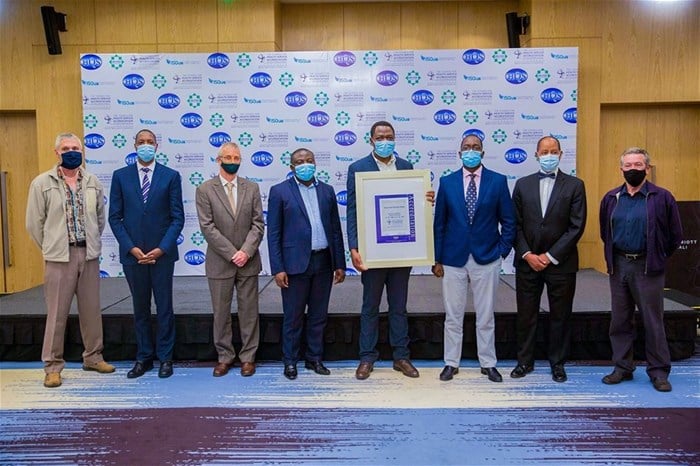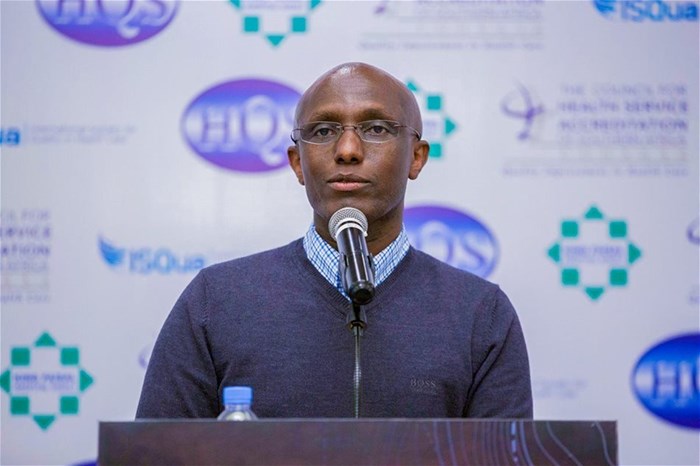Top hospital in Rwanda accredited for 4 years

Speaking at the ceremony, the minister of health in Rwanda, Dr Ngamije M Daniel, commended the facility on its determination and intent to meet the needs of its patients and exceed their expectations while maintaining a good attitude, empathy, professionalism, accountability and teamwork.
The minister of health said the government of Rwanda holds King Faisal Hospital Kigali in high esteem, but that consistency should be observed.

Professor Miliard Derbew, newly appointed CEO of King Faisal Hospital Kigali, gave that assurance. He attributed the success of the hospital to constant collaboration with the Cohsasa team. “We will keep the momentum and we are confident our standards will remain outstanding. Our first priority is the patient, and we will ensure standards remain constant.”
The accreditation journey of King Faisal Hospital Kigali in Rwanda began in 2006 when Cohsasa conducted a baseline survey to assess the hospital’s level of compliance with accreditation standards. The hospital did not do well, scoring a mere 41 out of a possible 100.
However, from this low baseline emerged, over time, a hospital that has just been awarded the four-year accreditation against internationally accredited standards, making King Faisal Hospital Kigali the first healthcare facility in Rwanda to achieve this distinction.
The award means that King Faisal Hospital Kigali shares this position with an elite group of 56 facilities in Africa to have achieved a four-year accreditation to date, of which 30 are hospitals.
Construction on the hospital had begun in 1987 and was completed in 1991 with financial assistance from the Saudi Fund for Development (SDF). It was designed as a 200-bed facility. During the Rwandan Civil War, the hospital dealt mainly with casualties but became a fully-fledged public health care facility thereafter. In 1998 the hospital turned into a private for-profit - institution as part of an agreement between the Ministry, private shareholders and Netcare International. This agreement came to an end after nine months and the hospital obtained registered status as a not-for-profit entity with funding from SDF, ministerial subsidies and local revenue generation. King Faisal is one of three regional/referral/academic institutions in Rwanda and operates as a fully-fledged acute care facility with fulltime specialists in most of the major disciplines with further development of tertiary services envisaged. It admits paying patients. In April 2016 a Concession Agreement for five years was awarded to the OSHEN Healthcare Group to manage the hospital; however, this contract was terminated prematurely in April 2019 due to the fact that OSHEN did not honour the agreement regarding important aspects, resulting in a loss of income, reduction of personnel and substandard service delivery. Subsequently, the oversight of the hospital reverted to the Rwandan Government. King Faisal is a major resource in healthcare provision in Rwanda and offers the highest level of care locally. It admits paying patients funded from different sources ranging from private healthcare funders (insurers) to government subsidies. The hospital operates Rwanda’s medical referral funds and coordinates any patient referrals from Rwanda to other countries as approved by the Medical Referral Board. This referral rate has dropped substantially over the years because of the success in developing local clinical expertise. Upgrading of the hospital facilities has been on the cards for several years but this has now started with a major phased building project, to be followed by rehabilitation of the existing buildings. |